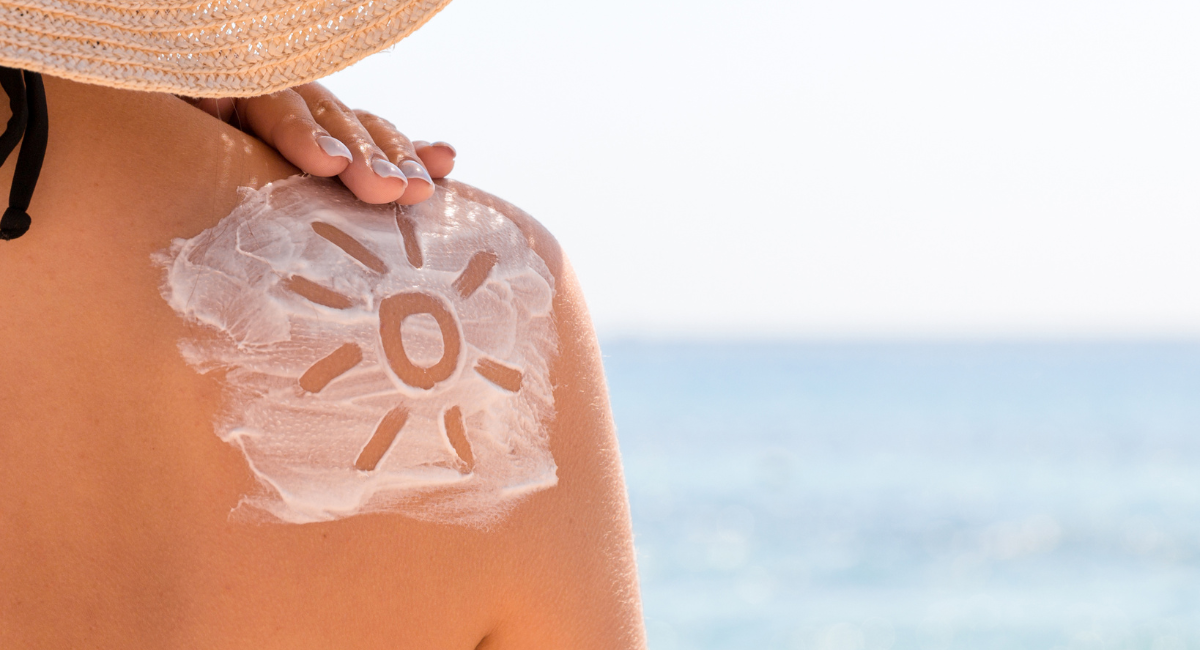Summer may be over, but your need for sun protection isn’t.
Whether you can see the sun or not, the sun’s rays reach Earth all year-round, exposing you to ultraviolet (UV) radiation. Even though the clouds block you from skin-burning UVB rays, UVA rays, which are associated with skin aging, break through just fine.
In this post, we’ll discuss the benefits of year-round sunscreen protection, the risk factors of UVA and UVB rays, and what you should look for in sunscreen products.
The Benefits of Sunscreen Protection
Your skin is your body’s largest organ. It serves many vital functions, including regulating temperature and protecting your body from the UVA and UVB rays. By applying sunscreen, you’re protecting your skin, so that it can protect the rest of your body.
Here are five more benefits of wearing sunscreen year-round:
1. Fewer Sunspots
Sunspots, also known as “liver spots” or “age spots,” are caused by hyperpigmentation of the skin and make you appear older than you are. Prolonged exposure to UV rays can cause sunspots to appear on numerous areas of your body, including your face, back, shoulders, arms, and the back of your hands.
2. Protect Collagen Production
Collagen production accounts for about 30% – 40% of your body’s protein. It’s essential for bone health, blood vessels, skin elasticity, cartilage, and connective tissue. Unfortunately, your body starts to slow its collagen production when you’re in your early 20s, and UV rays are a primary culprit. By wearing sunscreen, you’re helping your body protect collagen production, so that it can keep you looking young and feeling great.
3. Protect Blood Vessels
When UV rays damage your skin, they’re also thinning your skin’s blood vessel walls. When your blood vessels thin, they leave the appearance of bleeding or bruising.
4. Protection From Burns
Obviously, one of the main reasons you wear sunscreen is to protect your skin from burning. However, it’s worth mentioning again. According to Better Health, the signs of sunburn can begin appearing in as little as 11 minutes, and can turn your skin red within two to six hours. Your burn can continue to develop over the next 24 to 72 hours, and may take weeks to heal.
With continuous exposure to UV rays, your sunburn can become worse and much more painful. Even if it’s cloudy outside, we strongly recommend wearing sunscreen—especially if you’re already sunburned. Continue applying it even after your burn is gone and your skin has peeled. New skin is extra sensitive to UV rays and needs you to protect it.
5. Reduce the Risk of Cancer
Wearing sunscreen helps reduce your risk of skin cancer. We recommend using a broad-spectrum sunscreen with an SPF of 30 or higher. The higher the number, the more protected you are.
Understanding UVA and UVB Rays
According to SkinCancer.org, “UV radiation is part of the natural energy produced by the sun.” UV radiation is a human carcinogen and a known cause of melanoma and non-melanoma skin cancers. UV radiation can also alter a gene that suppresses tumor development, which can also lead to skin cancer.
The damage you receive from unprotected UV exposure is cumulative and increases your chances of developing skin cancer as you get older. Your body repairs some of your skin cells impacted by UV radiation, but it can’t repair all of them. Unrepaired cells accumulate over time and can trigger mutations that can potentially spurn malignant tumors.
UVA Rays and Their Risk Factors
UVA rays can tan, burn, and prematurely age your skin. Tans may look great, but they’re not healthy. Although they’re less intense than UVB rays, UVA radiation deeply penetrates your skin and can cause genetic damage to the top layer of your skin, where skin cancer most commonly occurs. To prevent further damage, your skin darkens, resulting in a tan.
UVA rays make up about 95% of the UV radiation that reaches Earth, and they’re as strong in winter as in summer. These rays can even penetrate cloud coverings and windows, so we’re constantly exposed to them.
UVB Rays and Their Risk Factors
Even though UVA rays can tan your skin, UVB rays are the rays we more often associate with sun tanning and burning. UVB rays penetrate and damage your skin’s outermost layers, making tanning apparent.
Unlike UVA rays, UVB rays cannot penetrate windows and vary in strength. UVB rays are usually the most intense from late-morning to mid-afternoon during spring and summer, but it all depends on what climate you live in. If you live at high-altitude or on reflective surfaces like ice or snow, UVB rays can damage your skin all year-round.
What to Look For in a Sunscreen
Not all sunscreens are created equal. Here are three things you should look for before making a purchase:
- Broad-spectrum: “Broad-spectrum” coverage means it protects from both UVA and UVB rays. When sunscreen products first came on the market, they only protected against UVB rays. You need protection from both.
- Sun protection factor (SPF): SPF measures how much protection a sunscreen offers, reducing your chances of a sunburn. The higher the SPF, the more protection you’ll have.
- Application type: Sunscreens come in lotions and sprays. Some contain zinc oxide and titanium dioxide, which can leave a white residue on your skin, while chemical sunscreens don’t. As long as they are broad-spectrum and have an SPF of 30 or higher, whatever application you choose depends on your personal preferences.
Sunscreen Protection at Boston Direct Health
At Boston Direct Health, we embolden every patient to look and feel their very best. When it comes to sunscreen protection, there are two products we recommend:
ZO Skin Health Broad Spectrum Sunscreen SPF 50
ZO Skin Health Broad Spectrum Sunscreen SPF 50 is an ultra-mild formula and works well for people with sensitive skin. It also soothes your skin and helps minimize irritation. Not only is it effective against UVA and UVB rays, it also protects you from high-energy visible (HEV) light, which shares many of the same characteristics of UVA rays.
Eucerin Sensitive Mineral Sunscreen Lotion SPF 50
Eucerin Sensitive Mineral Sunscreen Lotion SPF 50 is hypoallergenic, fragrance free, and can be used daily to protect your face and body from UVA and UVB rays. It’s also:
- Non-sticky
- Lightweight
- Spreads easily and feels silky on your skin
- Water and sweat resistant
To learn more about either of these products or to explore how else we can help optimize your life through aesthetics and medical care, send us a message!







